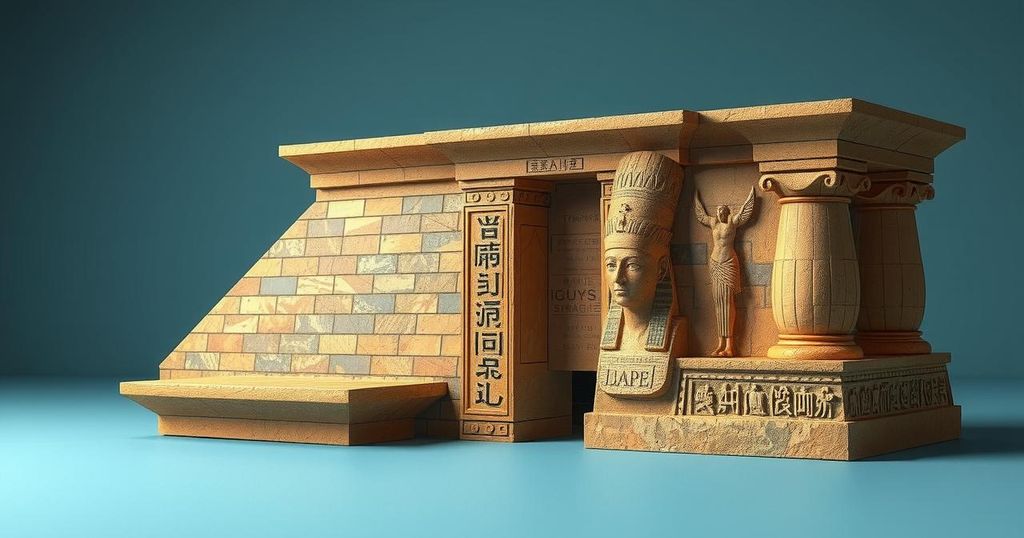Archaeological studies indicate that Egyptian pharaohs developed advanced drought preparation techniques during the Late Bronze Age, including increasing grain production and breeding resilient cattle. This proactive response to severe climatic changes was essential for maintaining social and political stability in their empire, which ultimately faced significant economic challenges due to extreme droughts.
Recent archaeological findings indicate that ancient Egyptians developed advanced strategies for addressing severe climatic challenges, particularly during the Late Bronze Age drought. Excavations in Israel, notably at Megiddo and the Sea of Galilee, revealed that Egyptian pharaohs prioritized increasing grain production in more fertile regions to ensure food stability across their empire. Furthermore, they initiated the breeding of robust cattle capable of withstanding drier environmental conditions. These measures were crucial for fostering societal and political stability in a time of crisis.
The Late Bronze Age, spanning from approximately 1250 to 1100 B.C.E., was marked by extreme drought affecting the Middle East North Africa (MENA) region. The resulting agricultural decline led to economic turmoil and population losses in Egypt, an area deeply dependent on the Nile for agriculture. This climatic shift, identified by both archaeologists and climate scientists, significantly impacted communities across the Mediterranean, including Egypt, Babylonia, and Mycenae, among others.
The drought is regarded as a contributing factor to the Bronze Age Collapse, causing the demise of numerous civilizations that thrived for centuries. In their analysis, researchers emphasized the correlation between environmental changes and societal collapse, noting that the effects of such climate crises are relevant to contemporary discussions around drought and agriculture. Ancient grains resilient to extreme hydrological variability became predominant during this period, as Egyptians adapted their practices to mitigate the negative impacts of climate change.
The study of ancient Egyptian civilization reveals significant insights into how climate change and extreme environmental fluctuations influenced historical societal dynamics. This analysis focuses on the Late Bronze Age, characterized by widespread drought in the MENA region, which devastated agricultural practices and culminated in substantial societal collapse. By examining archaeological sites such as Megiddo, researchers have garnered evidence of proactive measures that ancient pharaohs employed to combat the effects of climate change, ensuring their empire’s stability amid environmental adversity.
The archaeological evidence suggests that ancient Egyptians were not passive in the face of climate change; rather, they demonstrated a sophisticated understanding of agronomy and resource management. Their strategies to enhance grain production and breed resilient livestock were pivotal in maintaining their society’s stability amidst severe drought. This historical analysis serves as a critical reminder of the profound impact of climate on human civilizations, highlighting the necessity for adaptive strategies in modern times as well.
Original Source: knewz.com






